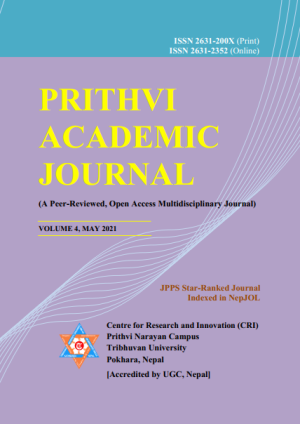Micro-credit for the Small Enterprises Development: A Case of Kaski District, Nepal
DOI:
https://doi.org/10.3126/paj.v4i0.37007Keywords:
Micro-credit, micro-business, micro-enterprises, microfinance institutionsAbstract
The aim of this paper is to examine the impact of micro-credit on the small or micro-enterprises development with reference to Kaski district of Nepal. The descriptive and analytical research design is used and the research is based on the primary sources of data collected through structured questionnaires. During the study, the researchers selected 170 respondents, who were involved in the micro-credit programme in the last five or more years in the microfinance institutions, using the purposive sampling technique. The study finds that the majority of the clients are involved in agriculture and livestock and the rest are involved in the micro-business and enterprises related to service industry (such as tailoring, beauty parlor, hotel or restaurant), trade or business and small-scale manufacturing sectors. Micro-credit has a positive correlation with initial investment, revenue generation, employment generation, expansion of business and profit generation. The study also finds that micro-credit has encouraged clients to engage in the micro-business and enterprise development activities. The study recommends that it is necessary to adopt an effective utilization policy of micro-credit that may benefit both microfinance institutions for its sustainability and clients for their living standard improvement.




